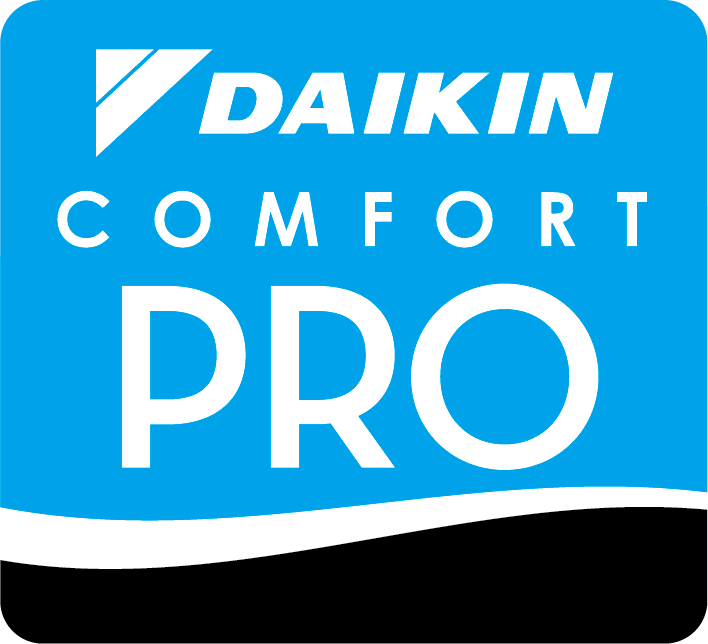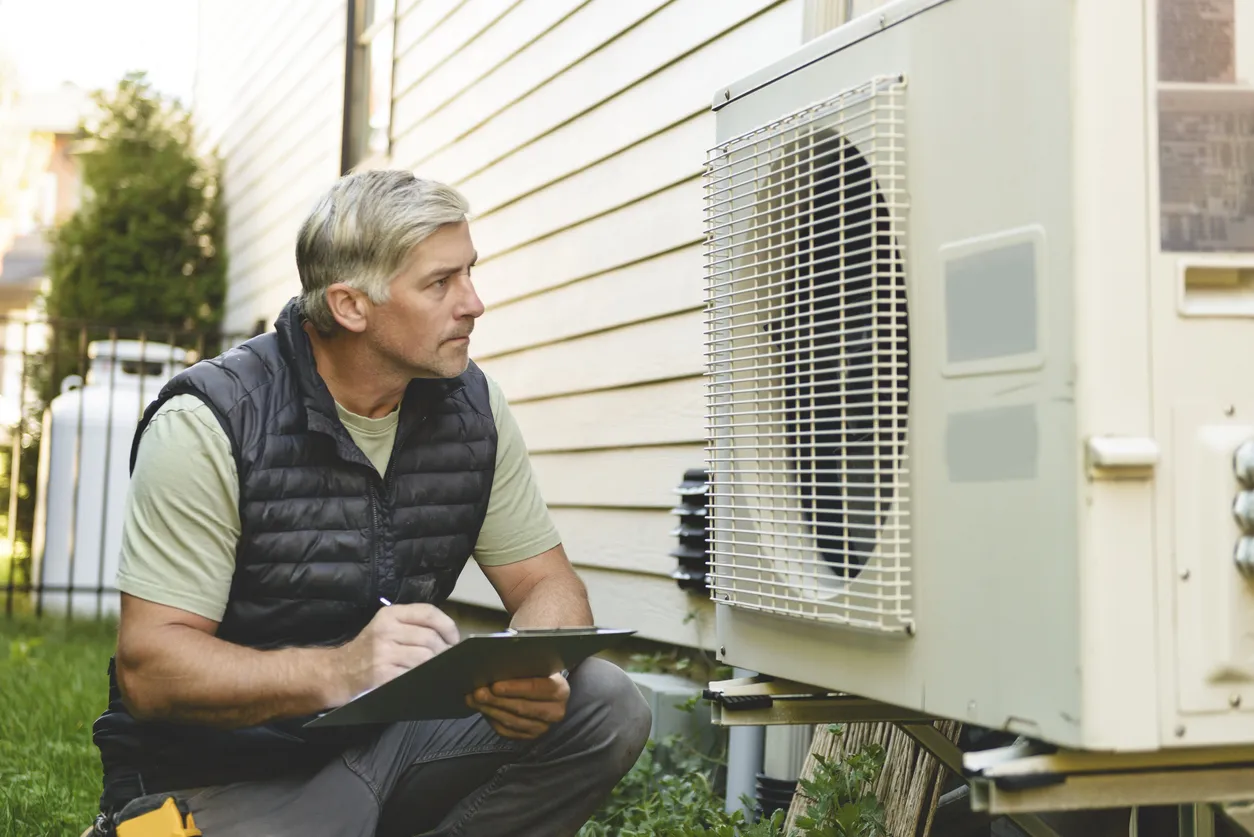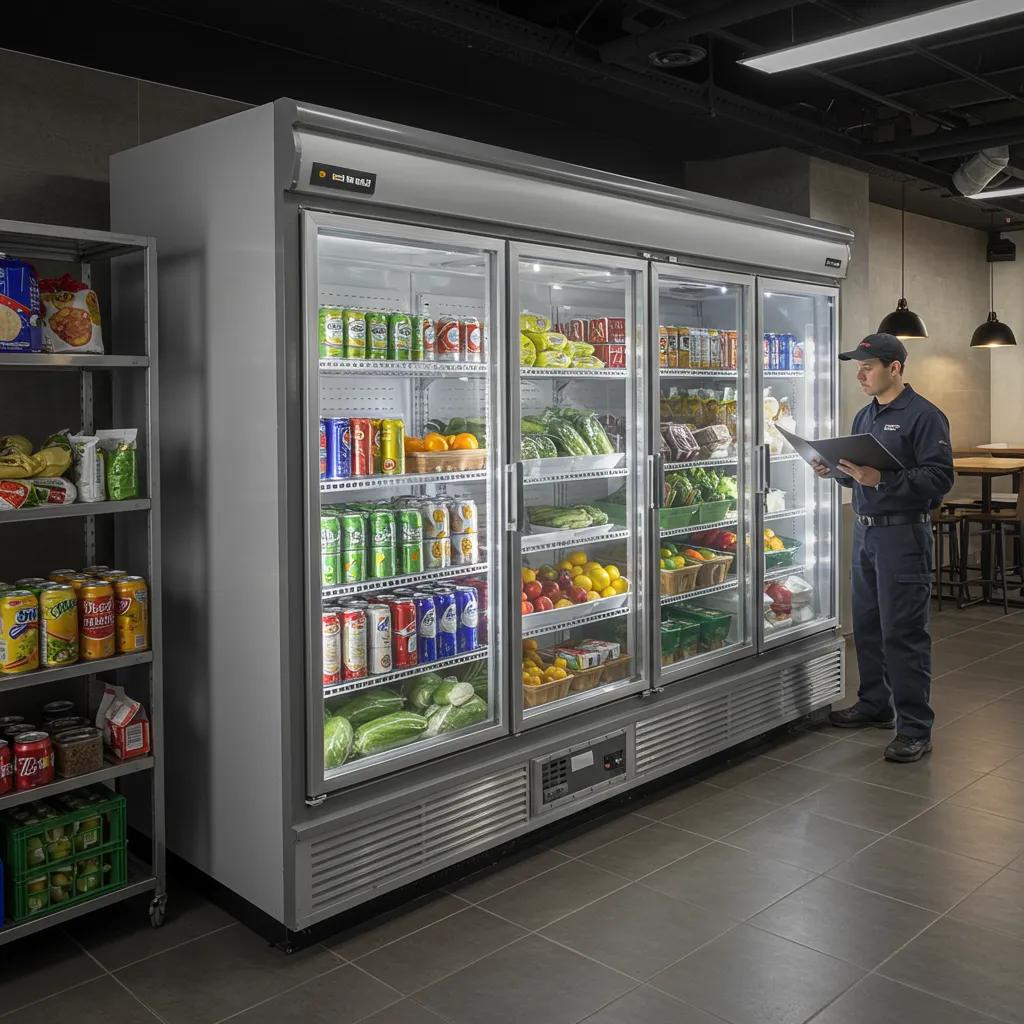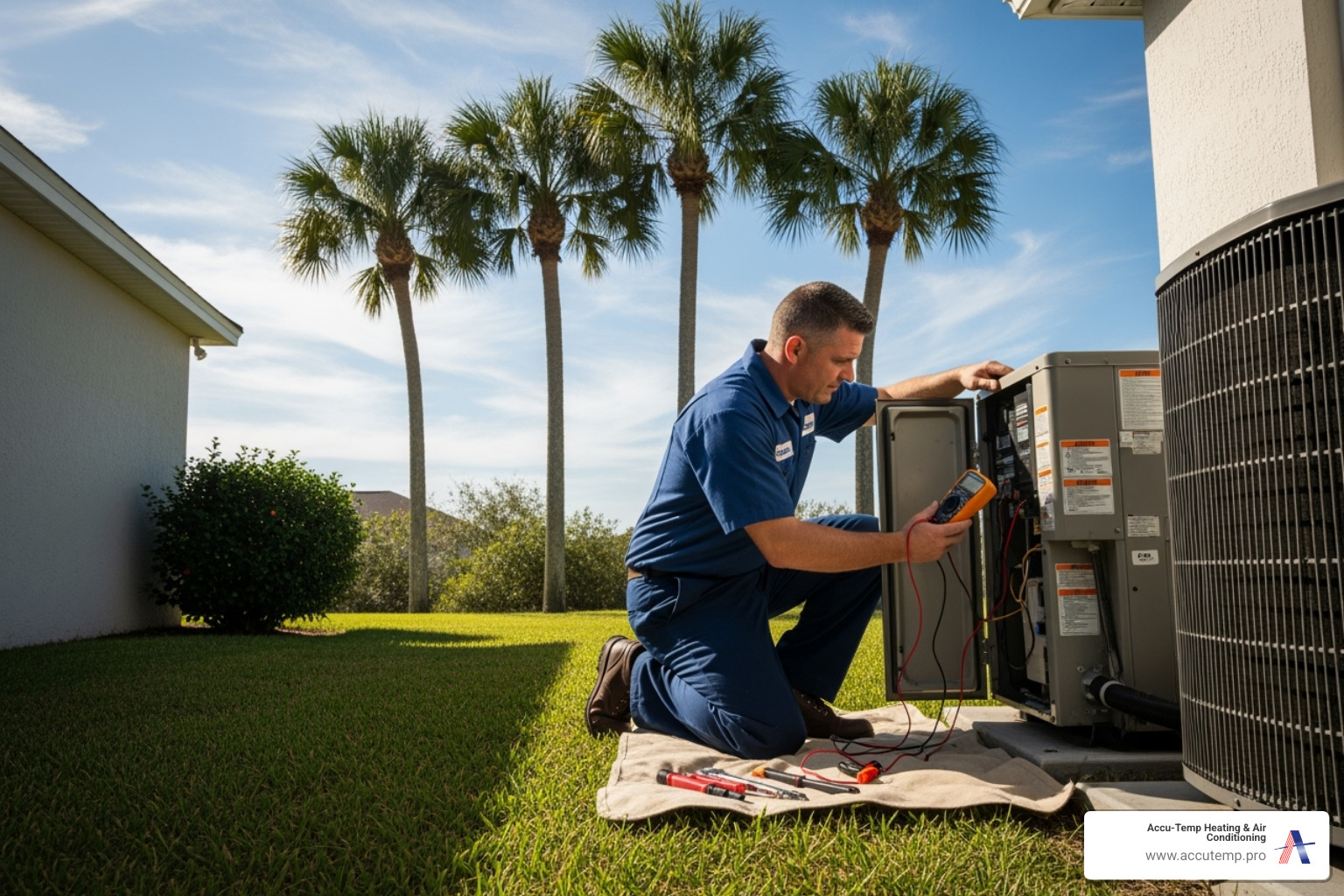Summer in Palm Coast brings high heat and rising humidity, both of which can impact how well your AC system performs. Homeowners often notice their system running longer, rooms feeling sticky, and indoor comfort dipping during this time of year. Many think their AC unit is wearing out or needs to be replaced, but the root of the problem is often excess humidity.
Humidity levels influence how much work your AC has to do to keep your home cool and dry. If your AC is not equipped or maintained to manage that strain, breakdowns can occur without warning. Understanding how humidity affects your system can help prevent problems and reduce the risk of unexpected repairs when your home needs cooling the most.
Understanding the Role of Humidity in AC Performance
Humidity is the amount of moisture present in the air. When humidity is high, the air holds more moisture, which makes indoor spaces feel warmer and heavier. Even if your thermostat is set to your preferred temperature, the added moisture in the air can make your home feel much less comfortable.
Air conditioners are designed to cool the air and remove some moisture as part of the process. However, in areas like Palm Coast, where summer humidity levels are consistently high, that added workload can stretch your system beyond its limits. Your AC may cool the air, but if it struggles with humidity, you may still feel hot and sticky inside your home.
Here are a few signs your AC system may be having trouble handling humidity:
– Your indoor environment feels damp or muggy, especially in the early morning or late evening
– A musty smell lingers around vents, especially after extended AC use
– Windows develop condensation even when the AC is running
– The AC runs longer than usual or struggles to reach the thermostat setting
– Indoor temperatures feel uneven across different rooms
One example is when the living room feels cool, but the bedrooms remain warm and uncomfortable. That can often be traced back to moisture in the air, making it harder for your system to evenly cool the house. Instead of circulating dry, cool air, the system moves moist air from room to room, making cooling inconsistent and less effective.
If these symptoms are familiar, your AC system may not be managing humidity as effectively as it should.
The Connection Between Humidity and Frequent AC Repairs
Heavy humidity does not just reduce comfort. It can lead to more wear on your AC system, causing specific repair issues that might need urgent attention. When moisture builds up inside your unit, it can affect different internal parts at the same time.
Here are a few common AC issues triggered or worsened by humidity:
– Frozen evaporator coils due to excess moisture buildup
– Dirty or clogged filters from constant moisture cycling
– Increased ductwork strain as your system works harder to push air
– Corrosion or rust developing on electrical components
– Water backup in the drain line from excessive condensation
Each of these issues can shorten the lifespan of your AC system and make it more likely to quit without warning, especially during a heatwave. That is one reason why emergency AC repair in Palm Coast becomes much more common during the hottest months of the year.
To reduce the risk of breakdowns, homeowners should focus on early detection and follow system care routines that minimize stress on their equipment. A few effective strategies include:
– Setting the thermostat to a consistent temperature to avoid frequent cycles
– Keeping ceiling fans running to assist air circulation
– Regularly checking and replacing air filters to prevent airflow restrictions
– Keeping windows and doors closed during the hottest hours to limit extra moisture intake
– Installing a well-sized dehumidifier if humidity continues to creep up indoors
Homeowners in Palm Coast who understand the link between high humidity and emergency repairs can take smarter steps to reduce strain on their systems. It is not always about cooling harder, but cooling smarter, with moisture control as part of the overall AC strategy.
Managing Humidity Levels for Optimal AC Performance
Controlling humidity starts inside the home. Even if your AC unit is working properly, the level of moisture in the air can impact how cool and comfortable your home feels. Without proper humidity control, your system will run longer and with more strain, especially in Palm Coast where summers are consistently humid.
Start by checking how well your home seals out outside air. Gaps around windows, doors, or attic spaces allow hot, moist air to seep inside, putting extra pressure on your AC. Once that happens, your system has to work both as a cooler and a dehumidifier. That is a recipe for wear and tear.
Using a dehumidifier can take some of the weight off your AC. These units pull excess moisture from the air before it reaches your AC system. When moisture is removed first, the remaining air is easier to cool. Your home will feel cooler even at a slightly higher thermostat setting, and your system does not have to work overtime.
Routine AC maintenance is another important step. When filters get clogged or coils are dirty, your system loses efficiency. That makes it harder for the unit to balance temperature and humidity. A clean system runs smoother, removes moisture more effectively, and helps prevent surprise breakdowns during peak summer heat.
If your system seems to be cooling but your air still feels damp or stale, it is a sign that the humidity problem is still present. This can turn into an ongoing issue if left unattended. Over time, even small performance drops in cooling and dehumidifying can affect your home’s overall comfort, and your AC may eventually fail when you need it most.
Professional Solutions That Fix Humidity-Related AC Problems
When moisture becomes a recurring issue, your system may need more than basic cleaning. Behind the scenes, internal components like coils, sensors, or motors can be affected by moisture exposure. It is not always about replacing equipment. Often, adjustments, repairs, or system balancing can resolve the problem.
Our technicians are trained to look beyond surface-level performance. If a cooling system is running more often than usual or struggling to keep up with the thermostat setting, they check for underlying humidity issues. They measure airflow, inspect for water buildup, and test the system’s ability to remove moisture from the air. Any weakness in those areas could mean your system is under strain without you realizing it.
Humidity control is not one-size-fits-all. What works in one house in Palm Coast may not work in another, especially if floor plans or insulation vary. That is why having system-specific insights from our professionals makes a difference. They recommend unit upgrades, install whole-home dehumidifiers where needed, and set up your system to sustain long-term comfort without stress.
Along with repair and tune-up work, scheduled maintenance is key. Systems that are professionally maintained tend to hold up better under humid summer conditions. Regular care helps catch leaks, clean drainage components, and prevent buildup inside the unit, all of which protect against mid-season breakdowns.
Maintaining Comfort in Palm Coast’s Humid Climate
Palm Coast residents know how quickly summer humidity levels rise. This makes year-round planning essential. Seasonal humidity shifts require different system settings and ventilation habits. What feels comfortable in May could create problems by late July if air circulation does not adjust to the increased moisture levels.
Make your home ready by updating habits and small systems that work with your AC. Use kitchen and bathroom exhaust fans more often to move moist air out immediately. Keep doors inside the home open so air can move freely between rooms. Avoid blocking vents with furniture or curtains. Restricted airflow leads to higher humidity levels in closed-off spaces.
If your AC already failed once this summer due to moisture-related issues, stay ahead of the next problem. Quick responses are key when your comfort depends on your AC running without fail. Emergency AC repair in Palm Coast is often linked to overlooked humidity causes, and those problems do not go away on their own.
Staying comfortable during peak heat is about more than running the air conditioner. Effective cooling includes managing humidity, airflow, and system condition all at once. From simple in-home steps to full-system adjustments, handling moisture the right way helps avoid repairs and keeps your home reliably cool.
If your AC is struggling to manage the intense humidity in your home, the experts at Accu-Temp Heating & Air Conditioning are here to help. Timely response to problems can prevent breakdowns and improve long-term system efficiency, and relying on emergency AC repair in Palm Coast ensures your cooling system functions reliably when you need it most. For a quick estimate or to book a service visit, please contact us today.




